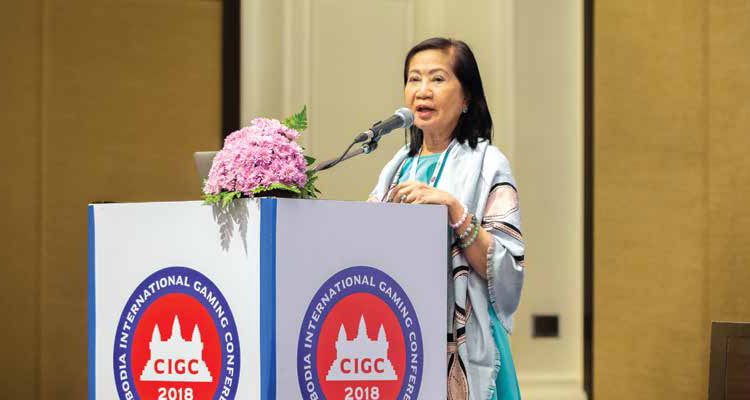It’s been an eventful few years for the Philippines gaming industry under the rule of President Rodrigo Duterte. Inside Asian Gaming sat down with Andrea Domingo, chair and CEO of Philippines gaming regulator PAGCOR, to discuss some of the key issues and events.
Andrew W Scott: In January, President Duterte ordered a moratorium on any new casinos for the period of five years. What sort of impact does that have on PAGCOR’s role as Philippines gaming regulator?
Andrea Domingo: It really has no impact. In fact, for me, it made my job simpler because assessing, evaluating all the applicants – and there are a lot of applicants – to see if they meet the requirements, it’s a very tedious job. Plus in most countries, in the third world, there are still a lot of influence peddlers who might want to try. I sometimes get tired of saying no.
AWS: The Philippines gaming industry has changed dramatically over the last five to ten years. Now that Entertainment City has had some time to settle down, how do you see the Philippines gaming industry in five or ten years’ time?
AD: I think it’s going to go great. But there would probably be a more scientific approach to the program and project mixes and more sophisticated marketing programs. But I think this industry is going to grow.
AWS: Do you see more expansion in the future?
AD: I think so, yes. In fact, the existing casinos now are expanding, like Solaire. They had their provisional license provided for two casinos, so now I am told they are going to develop their second casino in Quezon City after meeting all the requirements in 2019. City of Dreams is also looking into … not another casino but expanding their casino operations in the same area.
AWS: There will be four gaming operators in Entertainment City once Travellers International Hotel Group opens its IR in 2021. Will we see more operators in Entertainment City in the years to come?
AD: I cannot tell because land is very limited there. Then there’s new in nearby areas. And if the President, or the next President, will lift the moratorium. I cannot foretell what will happen.
AWS: At the moment there is some distance between each property and they are not really connected in any way. Do you see the whole precinct coming together and being more connected in the future, similar to a Macau or Las Vegas Strip?
AD: I wanted to do that, but the four original IRs there are very adamant in having, you know … they’re opposed to a fifth operator and they’re asking for the moratorium of five years for the industry to mature. And we’ve given them that, which means that there cannot be any casino operating – another casino operating – there until after February 2022 which is just about the end of the term of this administration.
But I really think there should be a critical mass in Entertainment City making the area more contiguous and each IR more accessible. I really believe that.
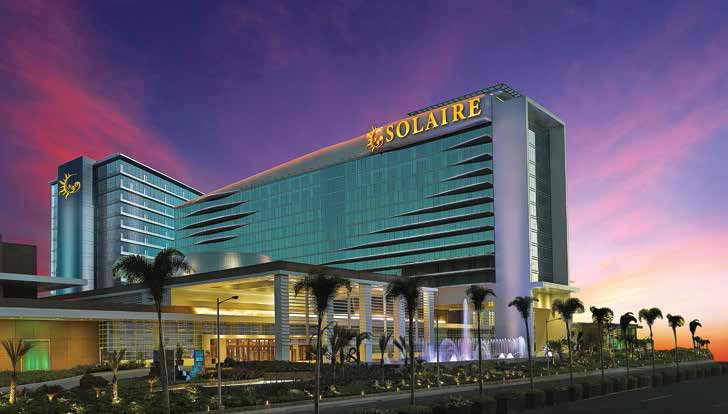
AWS: What about the PAGCOR properties. It was announced quite some time ago that they were to be sold. What’s the status of those sales?
AD: Well, Solaire just bought the land where they are based because they had that option to purchase the land. Okada is now asking for them to increase their lease on the land that PAGCOR owns, but we still have a lot of properties in the Marina Bay area and the price has really ballooned. The value has also increased.
But we are looking into it, whether we are going to develop that area or sell. We also have lots of properties in the Nayon Filipino area – we have 15 hectares there. But there’s a bit of a problem there with Philippine Airlines. We have lots of properties in Santa Rosa Laguna and in Tagaytay and we’re also looking at that.
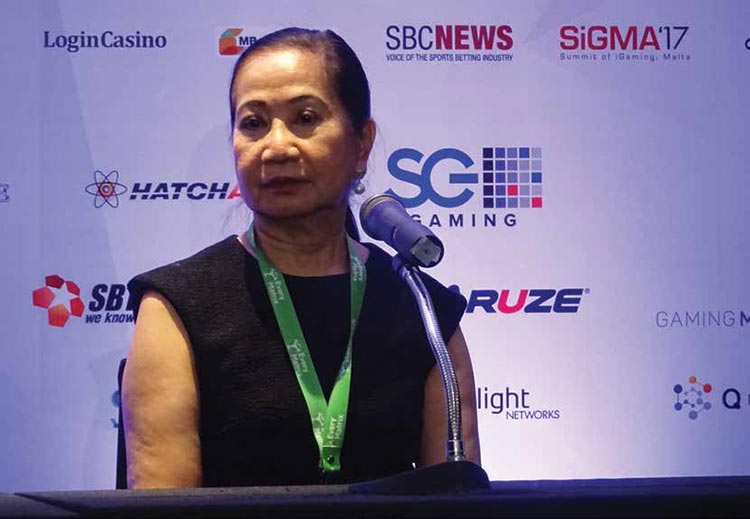 AWS: And the Casino Filipino properties there, how do you see their long-term future up against the integrated resorts of Entertainment City?
AWS: And the Casino Filipino properties there, how do you see their long-term future up against the integrated resorts of Entertainment City?
AD: You know, they are holding up quite well. Last year they contributed Php22 billion to our Php60 billion earnings and this year we’re looking at about Php26 billion to Php27 billion. You know the reason why, there’s a certain cultural characteristic of the Filipinos, the “Suki” mentality – they’re so used to dealing with these people, the personalized service, the “hi, hello”, they know each other’s first names – those are what the IRs will never be able to take from PAGCOR.
AWS: So you think there is a type of a player that likes that sort of local casino feel.
AD: Well look, before there were IRs in Entertainment City in Paranaque, we had our presence in Binondo, we had our presence in Manila Bay and our GGR hasn’t diminished. In fact, every year we continue to grow by 5% to 8%.
I was talking to one of the owners of the IRs and they said to me, “What if I just buy all of the PAGCOR stations and close them down?” I said, “The people won’t go to you. They’ll go to the illegal gambling stations because they feel more comfortable.”
You know they come in their slippers. Of course, we have a dress code, but they would feel intimidated going to a huge hotel, huge casino. I think we are able to retain our customers because it is us that they want to play with.
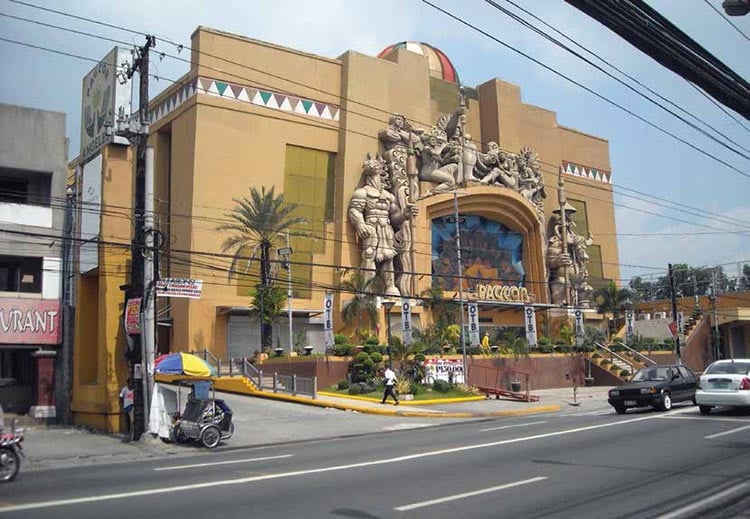
AWS: You said the PAGCOR properties comprised Php22 billion out of Php60 billion in revenue last year which is around 40% – nearly half of the action. Have you been having discussions with companies that are interested in acquiring those properties? We haven’t heard of any sales going through recently.
AD: Actually it is prohibited for us to talk to anybody who wants to buy because of the procurement law. But the issues that are being raised about PAGCOR owning casinos as well as regulating privately owned casinos, that it’s a conflict of interest, this doesn’t actually happen because being a government office, I have to go through procurement law – which is a nightmare. Before I can buy one machine, for example, that Resorts World Manila already has on the floor earning money, it takes me six to eight months to buy that machine and often by that time it is obsolete.
Then we have the corporate auditing, the independent auditing firm of the government, whereby every peso we spend is scrutinized. And there are so many laws, so many accounting principles that we have to follow that in fact our hands are tied. It is really just perseverance and persistence that keeps us going. Then there’s the ombudsman. Anybody can complain, even an anonymous complaint can be filed against you.
So, we’re not competing with the IRs. We cannot compete. But we’re keeping our market because we have a niche in the gaming industry.
AWS: Do you therefore think this current situation will just keep on going on with PAGCOR being an operator and regulator with different arms?
AD: I think for the next few years because they’re still profitable – because the PAGCOR-owned and operated casinos, the GGR they yield goes directly to the government, 100%.
With the IRs, our share of the GGR is about 19.5% so if you look into that and the contribution to the national government every year, if you take this out and go with 19.5%, it will take five years for a new IR to contribute that amount which automatically lessens our net contribution to the national government by Php22 billion for at least the next 10 years.
AWS: PAGCOR introduced its new Philippine Offshore Gaming Operator (POGO) regime last year. How is that playing out for you?
AD: It’s playing out very well. It has its own problems but by being strict, by being upfront and straight about managing it, like any professional business, I think that makes it easier.
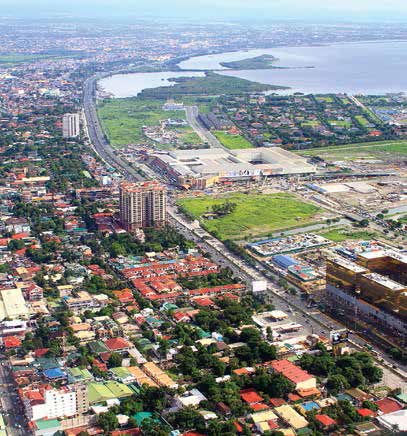
AWS: What was the rationale behind it. Going back a little bit, what is the rationale for introducing this new regime for offshore operators?
AD: It was because it came to the attention of the President – and he called our attention to it – that there is a lot of illegal offshore gaming.
We heard that there were about 200 operators and they should have been contributing Php56 million yearly to the government. We have 55 operators, we’ve just started and they’re already contributing this year about Php6 billion. So where did the rest of the money go?
But the worst thing was that we were being discussed in the gaming world as the illegal gaming capital of the world – and that is really, really bad. That’s what we wanted to fight. So we introduced the POGO license so the illegal operators might have a venue to legalize their operations.
But we’re very strict. We do not accept everybody who applies. They have to meet all of our requirements which include a US$250,000 application fee, another US$250,000 cash bond we can use if they welch on the bets of those who won or if they did not pay the government what is due.
The other thing is that the operators under POGO are now situated in the Philippines and are responsible for their operations because before, those who were authorized to conduct gaming, the operator was outside. They only used the service provider so there was nobody responsible. They also signed a waiver that the AMLC (Anti-Money Laundering Council Philippines) may look into their accounts.
AWS: How well was such a big shake-up received by the industry?
AD: They were happy, actually. The ones who really want to be legitimate, the ones who have companies that are listed in their countries, they were happy. Now PAGCOR is the face of POGO and offshore gaming and any complaint or any problem they come across, they can now approach us and we regulate. We try to make it right.
AWS: Has the POGO regime played out the way you thought it was going to play out? Has the result been successful from your perspective?
AD: I think from our perspective, yes. We probably have covered maybe about 85% of the illegal operators, but you know, we have a very good relationship with the Philippine National Police now, the National Bureau of Investigation and the President assigned a person who would look after all of this. Now we are able, with the Bureau of Immigration, to really raid the illegal gambling operators and actually stop their operations.
EDITOR’S NOTE: Ms Domingo politely declined to answer questions directly related to Landing International’s rejected Manila land deal. Visit asgam.com for background articles.






